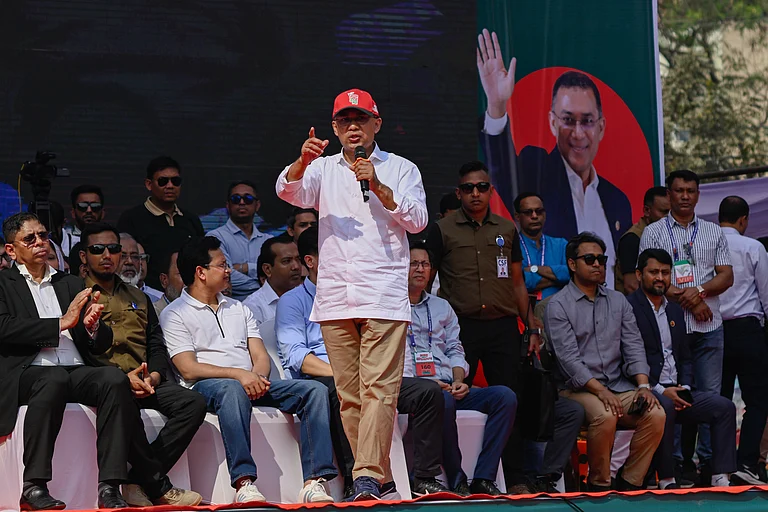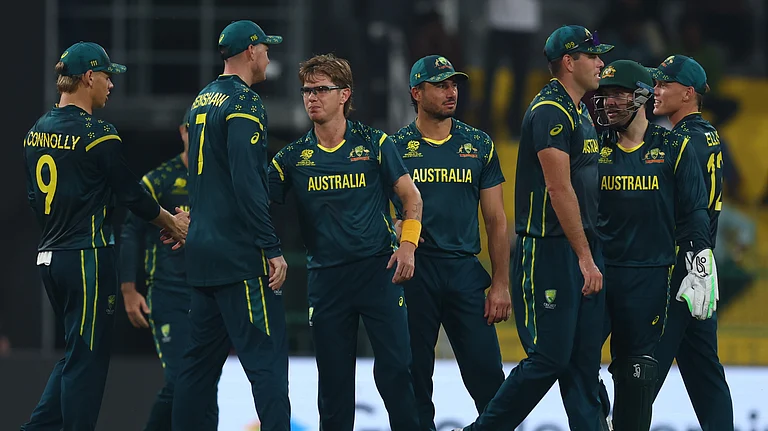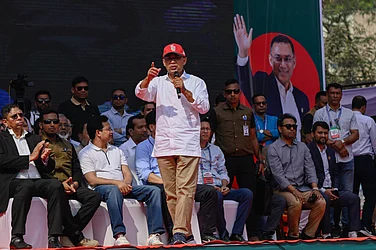When Ghulam Nabi Azad resigned from the Congress party in 2022, many in Jammu and Kashmir thought that given his apparent proximity to the Bharatiya Janata Party (BJP) leadership, he would be rehabilitated. Even in his book Azaad: An Autobiography, he says, “A lot has been said about my relationship with him (Prime Minister Modi). I have known Modi since the 1990s when he was the general secretary of the party and I was the general secretary of mine.”
Azad writes that he is angry that the PM’s farewell speech on his retirement from the Upper House made the Congress leadership unhappy and critical, and he was described as a BJP man. Azad wants to say he had nothing personal against any of his political opponents. “I treat political opponents as competitors, not enemies,” writes Azad.
Azad further writes that after the completion of the Rajya Sabha term, for the first time in his political career, he had no political work. He describes the G-23 letter of August 2020 to Sonia Gandhi as an effort to revive Congress. After the letter, Azad rues that he was dropped “from the general secretary position”. “So from February till August 2022, I had no party or legislative work to do,” writes Azad.
On August 26, 2022, Azad resigned from Congress with a “heavy heart”.
“When I realised that my ambition of seeing the Congress party back in power was not in line with the present-day leadership of the Congress, I felt I should build my own nest, which I could mature myself,” wrote Azad.
Left with no work, Azad went on to form the Democratic Progressive Azad Party (DPAP). As a large number of Congress leaders in Jammu and Kashmir joined him, it looked like a formidable political force in J&K. Many regional parties started talking about his party. Many thought other regional forces that emerged after the abrogation of Article 370 would also join him.
Azad started with a narrative that the restoration of statehood is more feasible than demanding the restoration of Article 370. He started giving statements calling for the restoration of statehood, followed by elections in Jammu and Kashmir and security for jobs and land for the residents of Jammu and Kashmir. Nothing happened. Neither statehood was restored nor elections were held. The only thing that happened was Azad’s party started experiencing an exodus of some senior Congress leaders. The Congress party was more eager to take them back. Jairam Ramesh welcomed them, saying these leaders were on a two-month leave. He started calling Azad’s party the Doda Azad Party.
Now, on August 7, when several leaders of Azad’s party joined Congress, Ramesh called Azad’s party Disappearing Azad Party. He said, “Earlier this morning, 21 J&K leaders from DAP (Disappearing Azad Party) rejoined the Congress, including one who filed a defamation case against me on behalf of Ghulam Nabi Azad.” Azad had filed a defamation case against Ramesh for calling his party Doda Azad Party.
However, Azad seems unimpressed, and he started talking about Article 370. In his latest tweet, he says, “Had a meeting with Kapil Sibal Ji in Delhi. Commended him for his strong defence of Article 370 in the Supreme Court. His impassioned stance echoed the concerns of the people of J&K. Kapil Ji roared like a lion. Grateful for his dedication and efforts!”
Sibal, however, pleaded the case before the Apex Court on a petition filed by the J&K National Conference (NC). This has exasperated many regional political leaders as all along Azad has been calling for the restoration of statehood for J&K and security for jobs and land. The Supreme Court hearing pleas related to Article 370 has generated a lot of hope among the political parties in Kashmir and they are positive about the outcome. Azad, it seems, does not want to be left out of this positivity.
Now Azad has switched to another narrative. This time, he has said that the majority of Indian Muslims converted to Islam from Hinduism. “In the parliament, once some BJP leader said someone has come outside and some are inside. I said no one has come outside. In India, Islam has been for 1,500 years. The Hindu religion is very old. Around 10-20 of them (Muslims) might have come from outside. Some were there in the Mughal army. The rest of them converted from Hinduism. Kashmir is an example of it. Some 600 years, who were Muslims in Kashmir? All were Pandits. And these (Pandits) converted to Islam. I am saying all were born in this (Hindu) Dharma only,” said Azad,
Azad further said all Hindus, Muslims, Dalits, and Gujjars have to make India. “India is our homeland. Nobody came from outside. We were born on this soil and will perish in it,” he said.
Azad said when Hindus die, they are cremated. He said, “Their brothers place their ashes in the river which mixes with the water and we drink that water. Likewise, Muslims’ flesh and bones become a part of the nation’s soil. We take a lot of soil. Our flesh becomes a part of Bharat Mata’s soil. Hindus and Muslims both merge into this land. What difference is there between them?”
Then Azad said religion should not be used to gain political mileage. “Whoever takes refuge in religion in politics is weak.”
The Vishva Hindu Parishad (VHP) and Bajrang Dal have applauded Azad.
Former J&K Chief Minister Mehbooba Mufti was very sarcastic about Azad’s statement, saying he should go further back to find out whether some monkey might be among his ancestors, while Omar Abdullah said he does not know whom Azad is trying to please by making such a statement.
Many in Azad’s camp view it differently and see Azad’s statement as part of a more significant debate about Muslims in the country. They say by stating that Muslims are not ‘outsiders’, he is implying that they are aborigines and have every right to this land. They also say as Hindu groups are calling Muslims outsiders but Azad’s counter to them is: “Muslims are not outsiders.” Salman Nizami, senior leader of Azad’s party, said Azad has been misquoted, saying he has only said Muslims are not outsiders and there is nothing wrong with it.
But many see it as Azad stating as if Muslims are ready to convert. Azad’s opponents say since he is not able to consolidate his position in Jammu and Kashmir, he is helping BJP with a national narrative. And Azad’s new narrative that “everybody is born in Hindu Dharma only” has many takers in the present times. And the BJP is at the forefront.
“In reality, Muslims in Indian sub-continents were Hindus earlier. Why does the Opposition want to deny the reality of this nation?” says the BJP.
This is not the end of it. No one knows what Azad comes up with next.


























